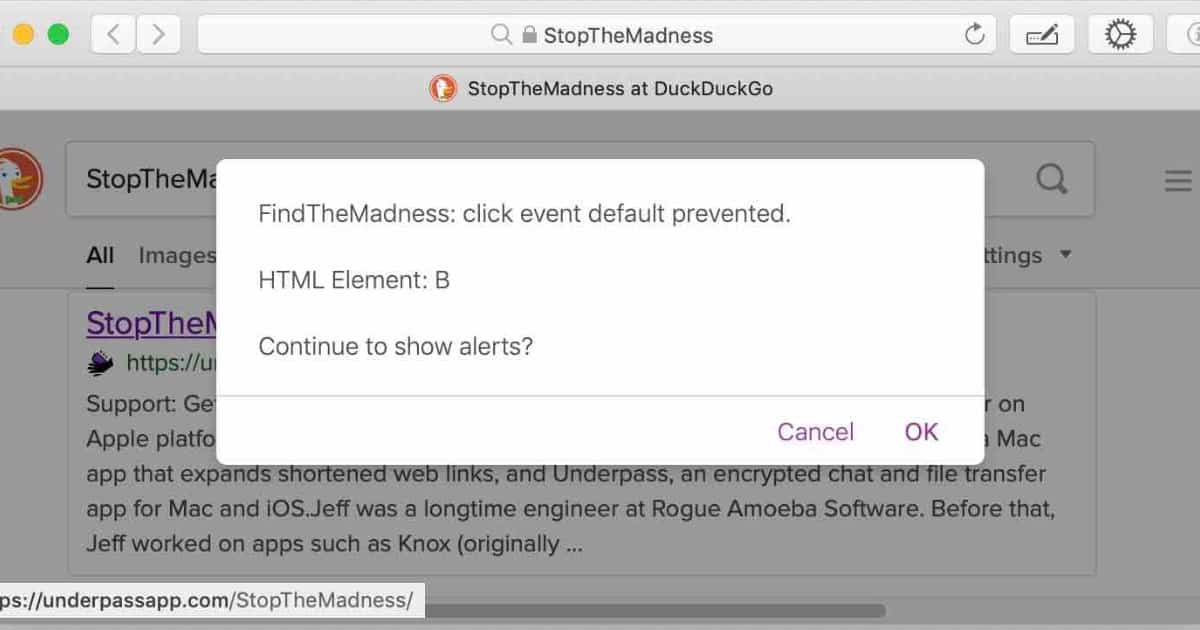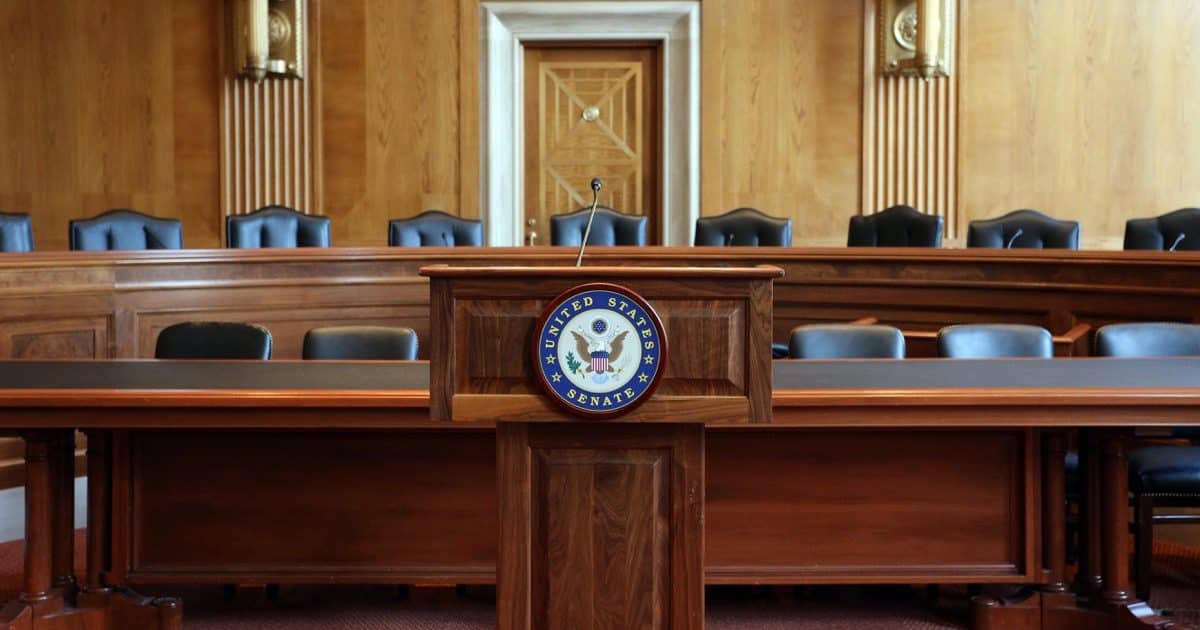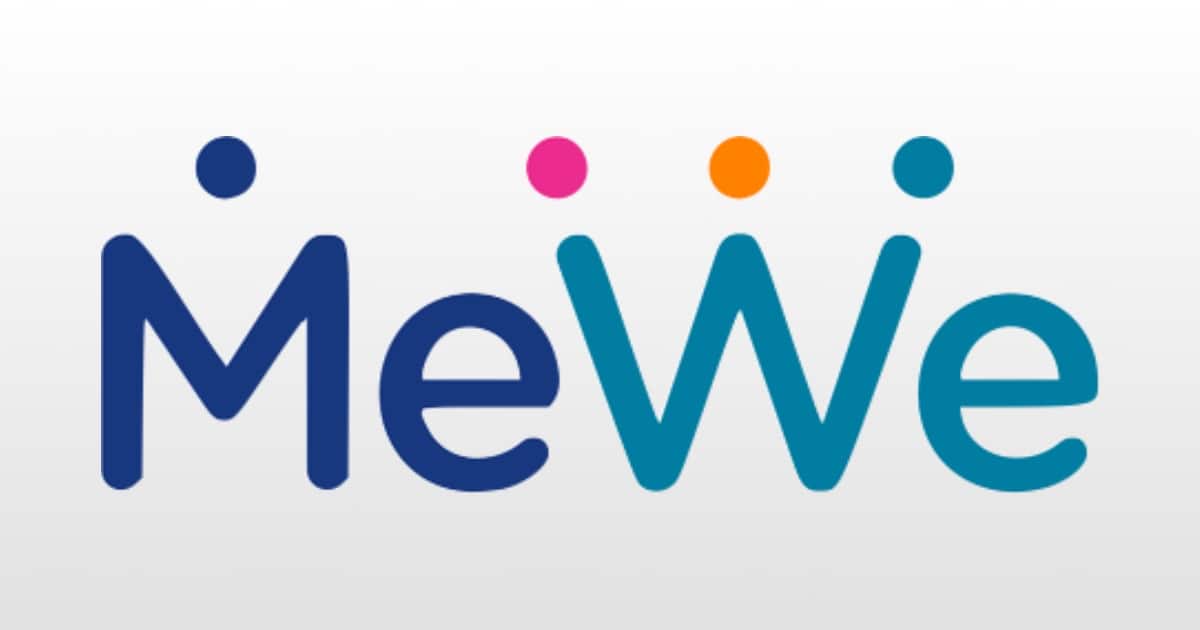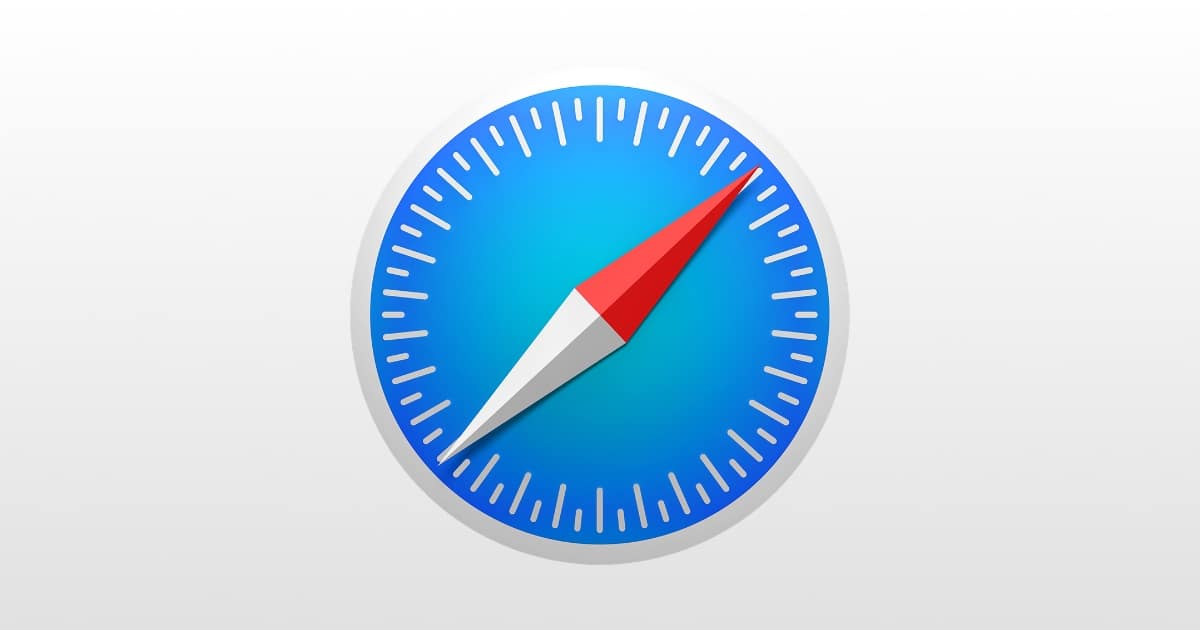Apple is extending the capabilities of the App Store Connect API for developers, following its redesign of the Connect website in June.
Articles by Andrew Orr
US Considers Banning Chinese Apps Like TikTok
During an interview with Fox News, Secretary of State Mike Pompeo said the U.S. is considering banning Chinese apps like TikTok.
Apple “Assesses” Hong Kong Data Requests From Chinese Law
Due to China’s new national security law, Hong Kong has been requesting more access to user data to hand over to law enforcement.
‘FindTheMadness’ Safari Extension Alerts You to Fake Clicks
FindTheMadness is a new Safari extension from Jeff Johnson. It gives you an alert when a website tricks you by running JavaScript triggered by a click.
FindTheMadness detects when JavaScript on websites overrides the normal expected behavior of your mouse and keyboard […] You may be astonished to discover how often you click what you think is a link on a page, but you’re actually running JavaScript triggered by a click.
Sounds like a nice tool, and it’s free.
Apple Signs Streaming Deal for ‘Where the Wild Things Are’
Apple has signed a deal with The Maurice Sendak Foundation to create a series and other TV specials for Apple TV+.
Supreme Court Supports Federal Ban on Robocalls
The U.S. Supreme Court has upheld a federal ban on robocalls and eliminated an exception that was made for government debt collectors.
Researcher Finds Mac Flaw That Lets Apps Read Protected Files
Security researcher Jeff Johnson is going public with a flaw found in a macOS privacy protection system. Apple is still investigating the issue.
Facebook Social Widgets May Be Considered Wiretaps, Court Ruling Says
In an order issued this week, the 9th Circuit Court of Appeals upheld a ruling in which Facebook social widgets may be considered wiretaps.
Senate Judiciary Committee Passes Anti-Privacy ‘EARN IT Act’
Today the Senate Judiciary Committee passed the EARN IT act, a bill that weakens Section 230 protections for social media companies in an attempt to fight online child abuse.
Pay Your Apple Card Bill Online With the New Web Portal
Apple has finally created a web page to let you pay your Apple Card bill online. It has the same features as the iOS Wallet app.
macOS Big Sur and the Return of Whimsical Design
Designer Michael Flarup writes about how macOS Big Sur will bring back “fun in visual design.”
With this approach Apple is legalising a visual design expressiveness that we haven’t seen from them in almost a decade. It’s like a ban has been lifted on fun. This will severely loosen the grip of minimalistic visual design and raise the bar for pixel pushers everywhere. Your glyph on a colored background is about to get some serious visual competition.
I don’t miss pre-iOS 7 skeuomorphism, but I don’t think I’ll mind some of that era’s icons coming back (just without the gloss). I also wonder if we’ll see them on iOS, or just macOS.
Private Social Network ‘MeWe’ Takes on Snapchat Stories
A private social network Andrew reviewed before is MeWe, and it just announced a featured called Journals for its premium subscription.
Mimeo Photos Adds a Wall Decoration Product
Last year Andrew reviewed a product called Mimeo Photos to create a photo book. They’ve just announced a new wall decoration product.
Apple Acquires Rights to ‘Emancipation’ Film Starring Will Smith
Apple has acquired international rights to “Emancipation” an action-thriller starring Will Smith. The deal was reportedly over US$120 million.
New Ransomware ‘OSX.EvilQuest’ Found in Pirated Mac Software
A new piece of macOS ransomware has been spotted in the wild within multiple pirated Mac software, and it’s called OSX.EvilQuest.
What Does AirPods Pro Spatial Audio Mean for Augmented Reality?
Em Lazer-Walker digs into the AirPods Pro spatial audio feature announced at WWDC 2020. What does it mean for AR?
As Apple improves their indoor location technology, [spatial audio] could also easily become a big part of making indoor wayfinding viable before they ship AR glasses, since the ARKit model of “hold your phone out in front of you while you walk through a space” is both socially and physically awkward.
I can’t wait for spatial audio to arrive. I use an app I’ve mentioned before that uses 3D audio, and I wonder if Naturespace will make use of this technology.
Add Funds to Your Apple ID, Get a 10% Bonus Through July 10
Through July 10, Apple is giving customers a 10% bonus when adding funds to your Apple ID. The maximum amount you can add is US$200.
How Apple Disrupted Certificate Authorities With Safari
In February, Apple implemented a rule in Safari in which TLS certificates have a lifespan of 398 days. According to ZDNet, Apple made this decision on its own without going through the standard procedure with certificate authorities.
Instead of calling for a vote, Apple simply announced its decision to implement 398-day lifespans on its devices, regardless of what the CAs in the CA/B Forum thought of the issue.
What took place this year is, in no simpler words, a demonstration that browser makers control the CA/B Forum, and that they hold full control of the HTTPS ecosystem, and that CAs are merely participants with no actual power.
‘Path to Apple Card’ Helps You Get Approved for Apple Card
Path to Apple Card is a new program from Apple and Goldman Sachs to help you get approved for Apple Card if you were declined.
Here’s Why This Company Won’t Add ‘Sign In with Apple’
Today is the deadline for developers to add Sign In with Apple to their apps. One company, AnyList, doesn’t want to add it and explained why.
After considering the merits of Sign in with Apple, we have decided not to support it. We understand that this may surprise some of our customers, so we’d like to explain in detail why we made this decision.
A couple arguments make sense, but I’m not buying some others. 1) I’m not a programmer so I don’t know how hard it is to add Sign In with Apple. 2) Saying iCloud isn’t “real email” is stupid. 3) AnyList removed its Facebook login, which is still a privacy-positive move even without adding Apple login.
PSA: The Deadline to Add ‘Sign In with Apple’ is Tuesday, June 30
The deadline for developers to add Sign In with Apple into their apps is coming up tomorrow, June 30. Andrew has several guides available for readers.
PSA: Don’t Install macOS Big Sur on the Same APFS Container as Older Versions
In our Mac Geek Gab forums, Brian Monroe has a warning for people wanting to try the macOS Big Sur beta.
16 Web APIs Apple Avoided Over Privacy Concerns
ZDnet has a list of 16 Web APIs that Apple declined to add to Safari over concerns they could be used to track users.
The vast majority of these APIs are only implemented in Chromium-based browsers, and very few on Mozilla’s platform.
Apple claims that the 16 Web APIs above would allow online advertisers and data analytics firms to create scripts that fingerprint users and their devices.
Exxon Mobil Offers 3% Cash Back With Apple Pay
Exxon Mobil is offering a deal for Apple customers. When you use Exxon and Mobil stations you can get 3% cash back with Apple Pay.























